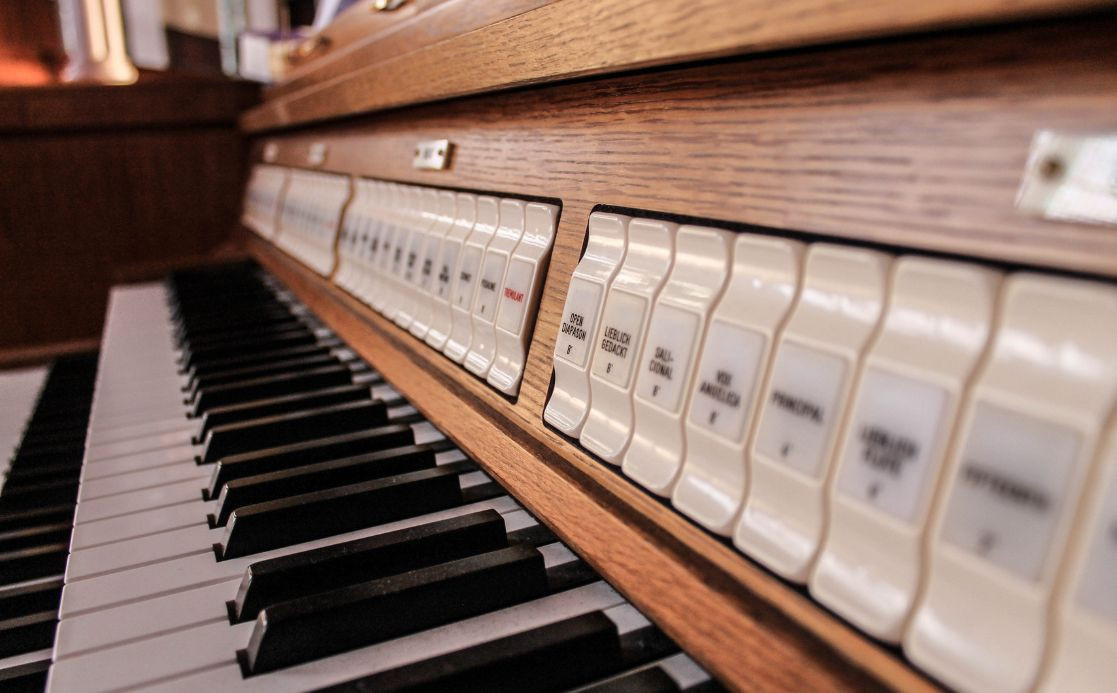Piano Key Materials & Type of Piano Keys

There are 3 things that most people look for when buy a piano. These are the piano brand, its sound quality, & its overall aesthetic look. But what they fail to factor in are the piano key material & the type of piano key. These piano keys are what play a significant part in the overall playability of a pianist. You need to understand the materials & types of piano keys before making a decision to buy a piano.
Whether you are a beginner to piano classes or a professional pianist; our comprehensive guide will help you in your decision to purchase a piano.
3 Popular Piano Key Materials
1. Traditional Materials: Ivory & Ebony
Your piano has white keys and for a long time, they were made from ivory. This ivory material comes from elephant tusks. As for the black piano keys, they are made of ebony wood. Ivory features a smooth texture with a little porous structure that offers an ideal grip for a perfect piano playing surface. Ebony is a dark wood which has a deep black color & offers hardness for piano keys.
2. Modern Standards: Plastics & Resin Materials
With ivory on ban due to the endangering of the elephant population, piano manufacturers started with alternative materials. Most piano keys are a product of high-grade composites of plastics & resins. These composite materials are widely in use due to their low cost, high durability, & continuous availability. Piano keys of these materials are less likely to crack & yellow as compared to ivory.
Another popular material for modern piano keys is ABS (acrylonitrile butadiene styrene) plastic. This material offers great resilience to wear & tear. Then there is Phenolic Resin that mimics the smoothness of ivory.
3. Substitute Materials For Ivory
Despite the availability of plastic & resin piano keys, there was a high demand for piano keys identical to ivory. To mimic the tactile properties of ivory, piano key manufacturers created synthetic ivory materials like Neotex & Ivorite. These 2 materials are well-regarded for replicating the exact feel & grip that of traditional ivory. Also, they are much more sustainable & eco-friendly. Synthetic ivory material is used only for high-end materials to give the pianist a feel as if playing a historic instrument.
Types Of Piano Keys
1. Weighted Keys
These keys are made primarily to give the feel of acoustic pianos. The lower keys or bass notes are heavier while the heavy keys or treble notes are lighter. This weight disparity of the keys is achieved with either built-in weights or a hammer-action mechanism.
The hammer action for weighted keys is designed to mimic the playability of Grand Acoustic Pianos. The hammer strikes the piano strings to produce the sound. Hammer action is mostly found in digital pianos for professional pianists or ones moving from acoustic to electronic keyboards.
2. Semi-Weighted Keys
These keys are a perfect balance between full-weighted digital piano keys & lighter piano keys for organs & synthesizers. They have a basic spring mechanism with a slight resistance for balanced piano playing. These types of piano keys mostly come in portable keyboards & digital pianos.
3. Synth Action Keys (Unweighted Piano Keys)
This piano key type is the lightest of any piano key type. However, it is much more responsive with their simple spring mechanism. This mechanism allows for a quick key movement smoothly by any pianist. These keys help pianists with their diverse playing styles that need quick note repetition. They are most commonly used in organs, electronic keyboards, & synthesizers.
4. Wooden Piano Keys
These wooden keys are mostly found in acoustic pianos & some high-end digital pianos. Wooden keys are preferred by pianists due to their natural feel, and lightweight & balanced playing surface. For digital pianos, these wooden keys often have a top synthetic layer for durability. These layers also mimic the look of ivory & ebony keys.
How To Choose The Right Piano Key Material & Type Of Piano Key
Selecting the right piano key material & the type of piano key is a matter of considering several factors. These factors include the playing style of the pianist, their experience level & their personal preferences.
For a beginner pianist, you will need a keyboard that has semi-weighted or unweighted keys. They offer beginners to play better & focus on the basics of piano playing styles.
For advanced or intermediate-level pianists, especially those inclined to acoustic pianos, weighted keys with a hammer action are optimal. These keys offer a much more realistic tonal quality to help with learning of proper piano techniques & various musical expressions.
For Professional pianists, the ivory keys or wooden keys are highly recommended due to the level of precision & control they offer. Their high durability & tactile response ensure that the piano meets the need for advanced music.
Conclusion
To improve your piano skills & playing style, you need to have a basic understanding & knowledge of piano key materials & their types. From ivory to ebony to synthetic materials; each piano key type has its own characteristics. Choosing the right piano key material & type will make all the difference for your piano performances.
You can Buy digital piano, Buy grand piano, Buy upright piano from our piano store in Dubai with amazing deals & offers.
